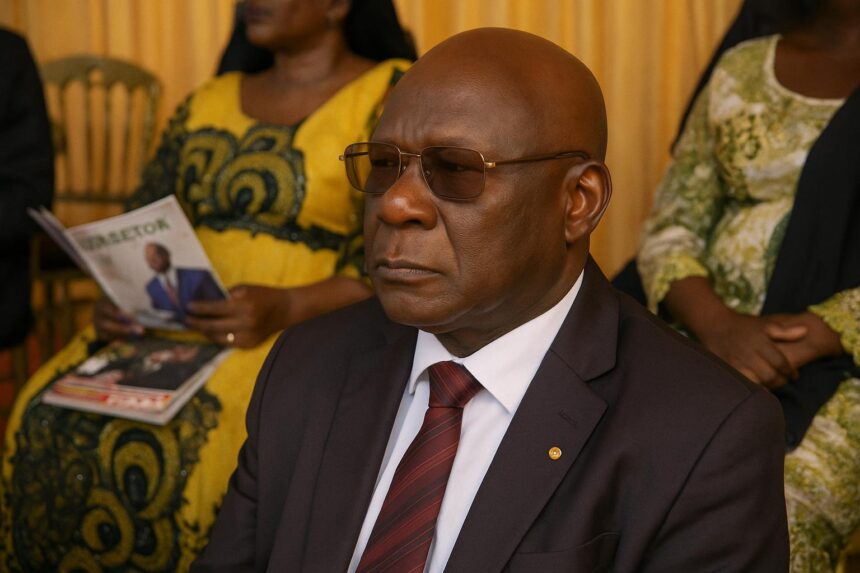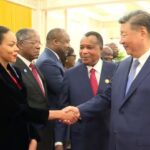Showcase of Modern Doctrine
The 65th anniversary parade, held under the direction of President Denis Sassou Nguesso, presented a carefully choreographed illustration of the Republic of Congo’s evolving security doctrine. Armour, high-mobility vehicles and precision marching units moved in unison along Avenue de l’Indépendance, projecting discipline and technological renewal (national broadcast, 15 Aug 2025).
Observers highlighted the presence of the motorised contingent from the Directorate-General of Finance and Equipment, DGFE, described by local media as the logistical nerve centre of the Force publique. Its column of newly acquired multipurpose trucks and secure communications vans signalled a commitment to rapid deployment and territorial coverage (Les Échos du Congo-Brazzaville, 2025).
Human-Centric Defense Vision
During the traditional New Year’s “weapons eve” address, President Sassou Nguesso reiterated that operational readiness begins with troop welfare. He pledged improved housing, potable water, electricity and road access to recently built barracks around Brazzaville, framing the measures as a strategic investment in morale (Presidential address, 31 Dec 2024).
Interior Minister Raymond Zéphyrin Mboulou, acting as governmental relay, has since translated the directives into administrative circulars for police and gendarmerie commands. Officers interviewed after the parade confirmed that procurement schedules are now formally linked to quality-of-life benchmarks, creating a measurable policy loop (Ministry communiqué, February 2025).
Medical Support at Home
Colonel-Major Michel Innocent Peya, head of DGFE, used the parade to unveil a mobile “Soldier at Home” medical unit. The service offers post-hospitalisation care, physiotherapy and psychological follow-up inside soldiers’ residences, reducing costly transfers and easing family burdens. Health professionals ride in refitted ambulances equipped for tele-consultation.
DGFE clinicians noted that continuity of care increases personnel availability by accelerating recovery times. The model, inspired by similar programmes in Ghana and Morocco, is considered a first in Central Africa’s security sector and aligns with the African Union’s 2063 health resilience agenda (African Security Sector Network briefing, 2024).
Carpentry Hub for Memory and Utility
Less conspicuous but strategically relevant is the DGFE carpentry workshop. Artisans there fabricate beds, lockers and classroom furniture for police academies, reducing import dependence and allowing rapid replacement of worn items. Wood is sourced from certified Congolese suppliers in line with national forestry standards.
The same facility constructs honour coffins, finished in deep mahogany and bearing the national crest. Military protocol officers stress that a uniform design guarantees equal homage across ranks, reinforcing institutional cohesion. Families interviewed described the gesture as “a dignified bridge between barracks and household” (Radio Congo interview, April 2025).
Dignified Farewell Logistics
Complementing the carpenters, DGFE has introduced purpose-built hearses with retractable flag platforms and climate control. The vehicles ensure respectful transport from hospital to home village or military cemetery, integrating seamlessly with ceremonial escorts and band units.
Protocol manuals updated this year codify the sequence: reception by honour guard, silent salute, insertion of the tricolour, and transfer to the hearse. Analysts view the codification as part of a wider professionalisation drive encouraged by the Presidency and applauded by regional defence colleges (UN Standing Advisory Committee on Security Questions in Central Africa report, 2023).
Community Sanitation and Civic Spirit
DGFE’s remit now stretches beyond uniforms and engines. Recent donations of waste-collection trucks to Brazzaville municipality underline an emerging civil-military outreach dimension. Avenue Saint-Denis and Boulevard Alfred Raoul were cleared of refuse before the parade, showcasing synergy between security services and local governance.
Public-placed litter bins bearing police insignia serve both as practical receptacles and visual cues of shared responsibility. Urban planners argue that such gestures, though modest in cost, foster daily interaction between citizens and uniformed personnel, tempering perceptions of distance often associated with armed institutions (Central African Urban Governance Review, 2025).
Institutional Continuity and Outlook
Analysts note that every initiative displayed on 15 August connects to a single policy thread: strengthening the social contract between state and soldier. By embedding welfare, memory and community action into operational planning, Congo-Brazzaville positions its Force publique as a stabilising actor in a challenging regional environment.
Future milestones include digitised inventory management and expanded medical tele-medicine links with regional hospitals. Asked after the parade, Colonel-Major Peya summarised the trajectory succinctly: “Modern security is measured not only by firepower but by the confidence our citizens place in us.” That conviction appeared tangible along the parade route.






















